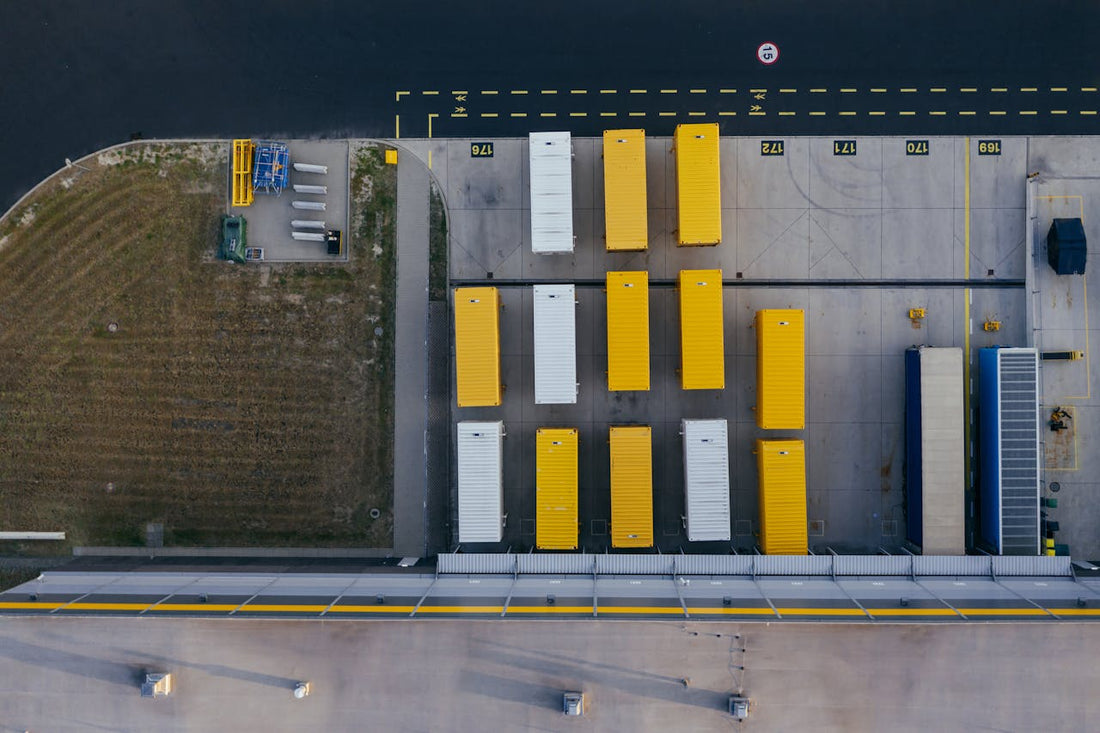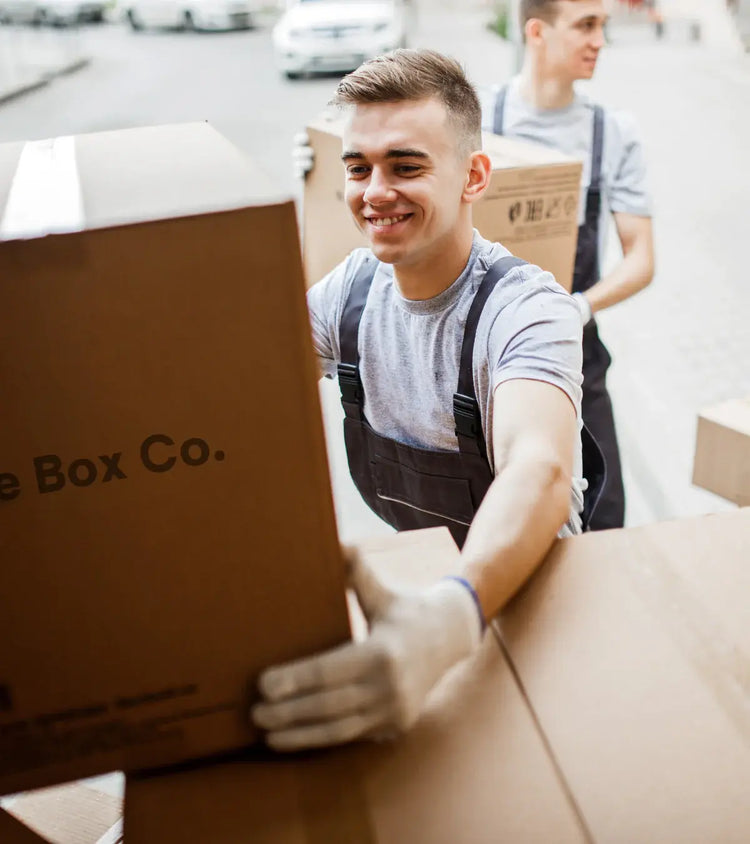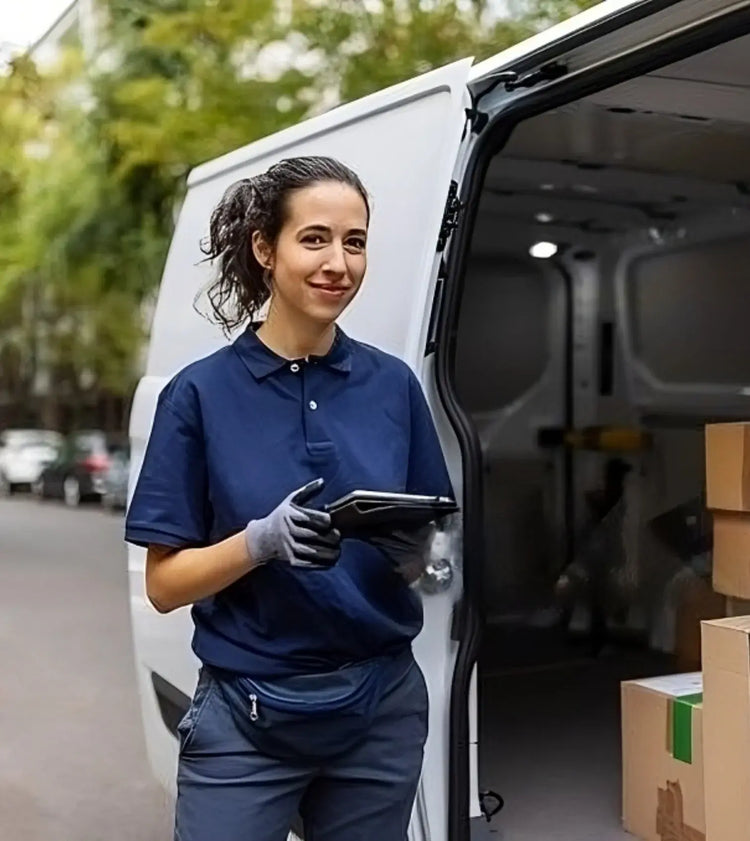
Everything You Need To Know About Self-Storage

Share
Self-storage involves renting a unit or container that is designed to store excess items.
As a concept, self storage has become a popular choice for people who want to stash things away in a flexible and secure way.
Whether it's for downsizing, moving, decluttering or just putting away business inventory, self storage can be a cost-effective way to access some extra space.
If you want to find out more about what self-storage entails, look no further. Here, we talk you through everything you need to know before you start your storage journey.
What Is Self-Storage and How Does It Work?
Self-storage is a process that involves renting units or storage containers within a facility where you can store personal or business belongings.
These units come in a variety sizes and are usually rented on a monthly basis.
How Does It Work?
When you sign up to self-storage, you will usually follow this process:
- Choose a unit: Choose a storage unit size based on how many items you have and how much space you need. Unit sizes can range from small lockers to big spaces that can fit furniture, machinery and even cars!
- Sign a contract: You’ll sign a rental agreement that lays out the terms, duration and costs of storage.
- Move in: Pack and move your items into the facility, where you can organise them according to what you might need and when.
- Check in on your belongings: Most facilities will allow you to access your items during business hours, whilst others offer 24/7 access. This will be outlined in the agreement so you know exactly when you can pop in.
What Is Self-Storage Used For?
Self-storage is a good option because it offers flexibility and convenience. It can be useful in many scenarios, including:
Personal items: Store household items during renovations, moves or while traveling.
Business use: To store inventory, documents or equipment without needing to rent bigger office spaces.
Seasonal storage: Keep sports gear, holiday decoration or other seasonal items like skis, mountain bikes and scuba gear out of the way.
Vehicle storage: Safely store cars, motorcycles or recreational vehicles, without needing to keep them at home.
If you don't have enough items to fill a whole unit, storage by the box might be a better option. See our guide around self-storage vs storage by the box.

How to Choose the Right Self-Storage Facility?
If you've decided you want to put your items into storage, the next step is choosing the right facility.
Here are some key elements to think about
Location: Storage by the box companies will do the transport for you, but self-storage will mean visiting your own unit. Choose a facility close to your home or business for convenience. However it's worth noting that affordable storage in London or other big cities may be harder to come across, so it's worth shopping around!
Security: Look for 24/7 CCTV, secure access and well-lit spaces. Speak to the company about how they safeguard against theft.
Flexibility: Go for a facility with flexible rental agreements that allow you to easily upgrade, downgrade or terminate early if needed.
Access Hours: Make sure the facility’s access hours suit your schedule. If you can only go during the working day but have a full time job, it's unlikely to work for you.
Costs: Compare prices and check for fees or discounts online.
What Size Storage Unit Do You Need?
Choosing the right size unit can save money. No one wants to pay for empty space that they aren't using.
Here are some common unit sizes and their uses:
5’x5’: Small items like boxes, books or small furniture.
5’x10’: Perfect for the contents of a small flat.
10’x10’: Good for a one-bedroom apartment or small house.
10’x15’: Fits two-bedroom apartments or larger furniture.
10’x20’: Perfect for a three-bedroom house.
If you don't have enough items to fill an entire unit, why not go for storage by the box? This allows you to pay only for the amount of items you stash away, meaning you never pay for space you don't use.
To get a free quote, visit The Box Co. today.

How To Prepare Your Items For Self-Storage
If you plan to put your items in storage, you'll want to prep and pack them properly.
Here are some pro-tips.
- Disassemble furniture: Save space by storing furniture upright or flat against walls.
- Clean everything: Making sure items are cleaned (and dried!) before putting them away prevents mould building up.
- Use durable boxes: Use durable boxes and try not to overfill them. To maximise space, fill any gaps with soft items like towels and bedding.
- Label boxes: Clearly label the contents of every box so it's easy to find them when you're ready.
- Stack strategically: Put heavier items at the bottom of a box. When stacking boxes, put anything you are likely to need first at the front.
For business storage, think about adding shelving and having systems in place to organise inventory properly. This will make it easier to collect when needed.
If you need more tips, read our guide around 'how to prepare items for long-term storage'
What Are The Alternatives To Self-Storage?
If self-storage isn't the right fit, there are alternatives that you can look into, including:
- Storage by the Box: Companies collect, store, and return your items as needed. This is a convenient option for those with limited items or irregular access needs.
- Home Storage: Use basements, attics or garages to pack any items you don't need.
- Shared Storage: Rent a portion of someone else’s space, or split the cost of a unit with a friend or family member.
What Are The Advantages Of Self-Storage?
Self-storage comes with a number of benefits, including:
Flexibility: You can rent short- or long-term units based on your needs.
Security: These units tend to have higher security than homes.
Convenience: Many facilities have 24/7 access and trolleys or van hire to make the process easier.
Cost: Space is expensive. These units are usually more affordable than buying a bigger living or office space.
What Should You Avoid Putting In A Storage Unit?
While most items are allowed, there are restrictions for what you can store in a unit. Whilst most companies will outline this within the agreement, common restrictions include:
Prohibited Items: Flammable liquids, perishable goods and illegal items like drugs or weapons.
Living Things: Plants and animals. If it breathes - it's not allowed!
Unsecured Items: Drain fuel from machinery or vehicles before storage.
What Happens When You Need To Downsize or Upgrade Your Self-Storage Unit?
If your storage needs to change, most facilities will give you some element of flexibility.
Most of the time, this will include terminating one rental and starting another. However, if you go for a storage by the box company - then you can add or remove items more easily.
Speak with your facility to transition smoothly to a different unit size.
What To Look Out For In A Rental Agreement?
When you sign up for self-storage, you'll need to sign a rental agreement.
It's always worth reading the fine print, but a few things to look out for:
Duration: Check minimum rental periods and notice periods for termination.
Flexibility: Make sure you can adjust your unit size or end the contract early if you need to without paying high fees.
Insurance: Understand coverage for your items. Most companies will want to see proof of storage insurance, while others might offer it in house. Make sure it's clear so your items are fully covered.
Tips For Lowering Self-Storage Costs
Self-storage can be expensive, but there are a few ways to keep costs down, including:
Efficient packing: Stacking items strategically can mean you don't need to pay for a bigger unit, helping to keep costs down.
Seasonal adjustments: Upgrade or downgrade based on seasonal needs. For example, if you're storing skis that take up a lot of space, transition to a smaller space over winter whilst you're using them.
Discounts: Look for promotions online or negotiate prices with the facility.
Storage by the box: Go for options that mean you don't have to pay for a whole unit, like storage by the box.
What Happens If You Stop Paying For Self-Storage?
Failing to pay for your self-storage unit can result in a series of penalties such as:
- Lockout: After a grace period (usually around 30 days), access to the unit can be lost.
- Auction: If payments stay overdue, the facility may auction off the contents of your unit to recover unpaid fees.
- Legal action: Depending on the terms of the contract, you could face extra charges or be taken to court for outstanding amounts.
To avoid these, talk with the storage facility if you come under financial difficulties. Some facilities may offer payment plans to help you repay what you owe.
Can You Sleep In A Self-Storage Unit?
No, it is illegal to sleep in a self-storage unit. These units are strictly designed for storing items, not for humans to live in.
Why Is It Illegal?
- Health and safety: Storage units don't have ventilation, heating, running water and basic amenities that people need to live, making them unsafe.
- Zoning laws: Storage facilities are zoned for commercial use, not residential living.
- Insurance policies: Storage companies’ insurance does not cover people living in the units, which puts the company at risk.
- Security risks: Unauthorized living can compromise the security of the facility and other customers’ belongings.
Consequences
Violating these rules can lead to eviction, termination of your rental agreement and legal penalties.
Self Storage: Everything You Need To Know
Self-storage is a flexible, secure, and practical for a variety of storage needs.
Whether you’re moving, downsizing or looking for extra space, understanding how self-storage works can help you make informed decisions about your storage unit.
If you are looking for flexible and affordable storage, get a free quote from The Box Co. today.



